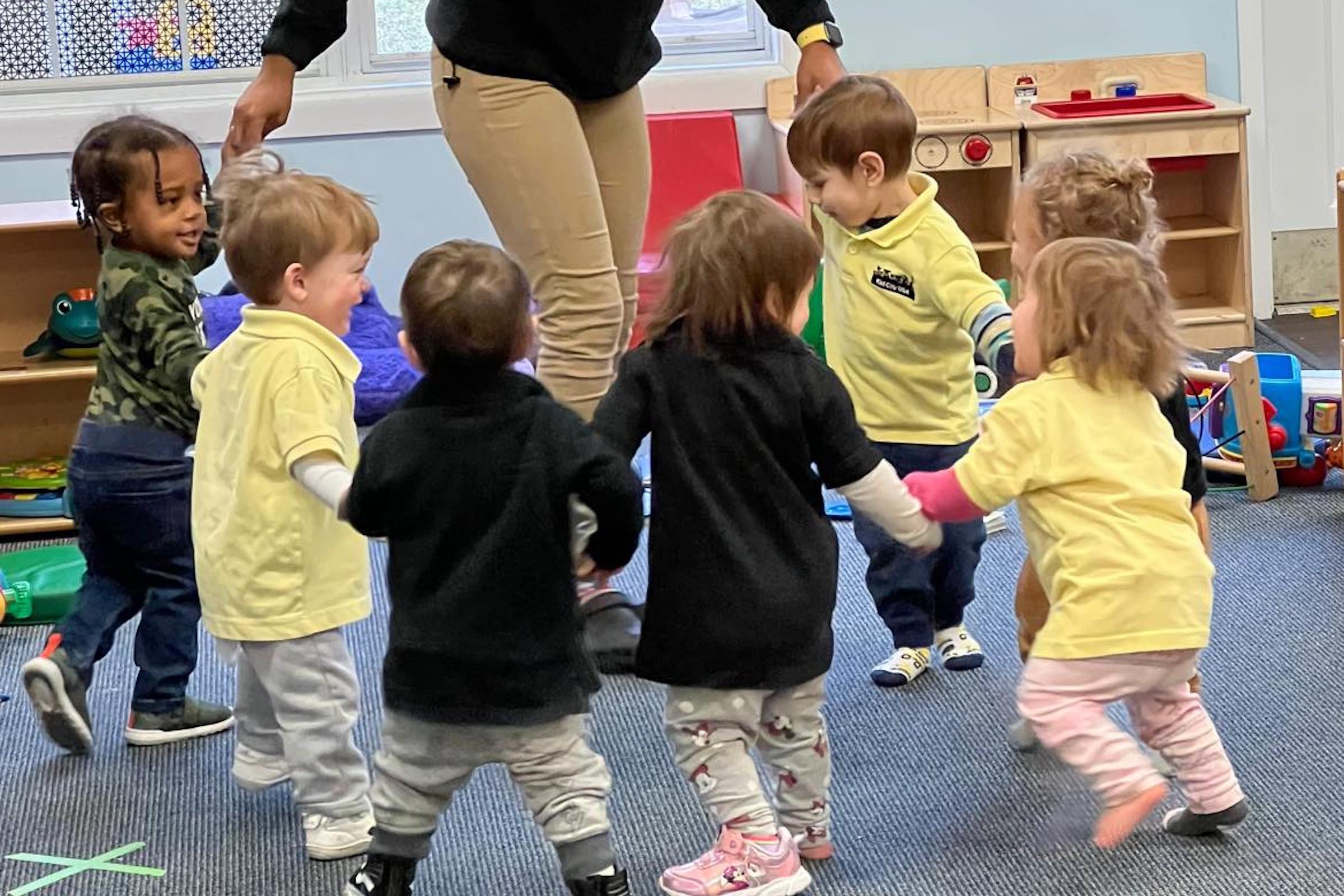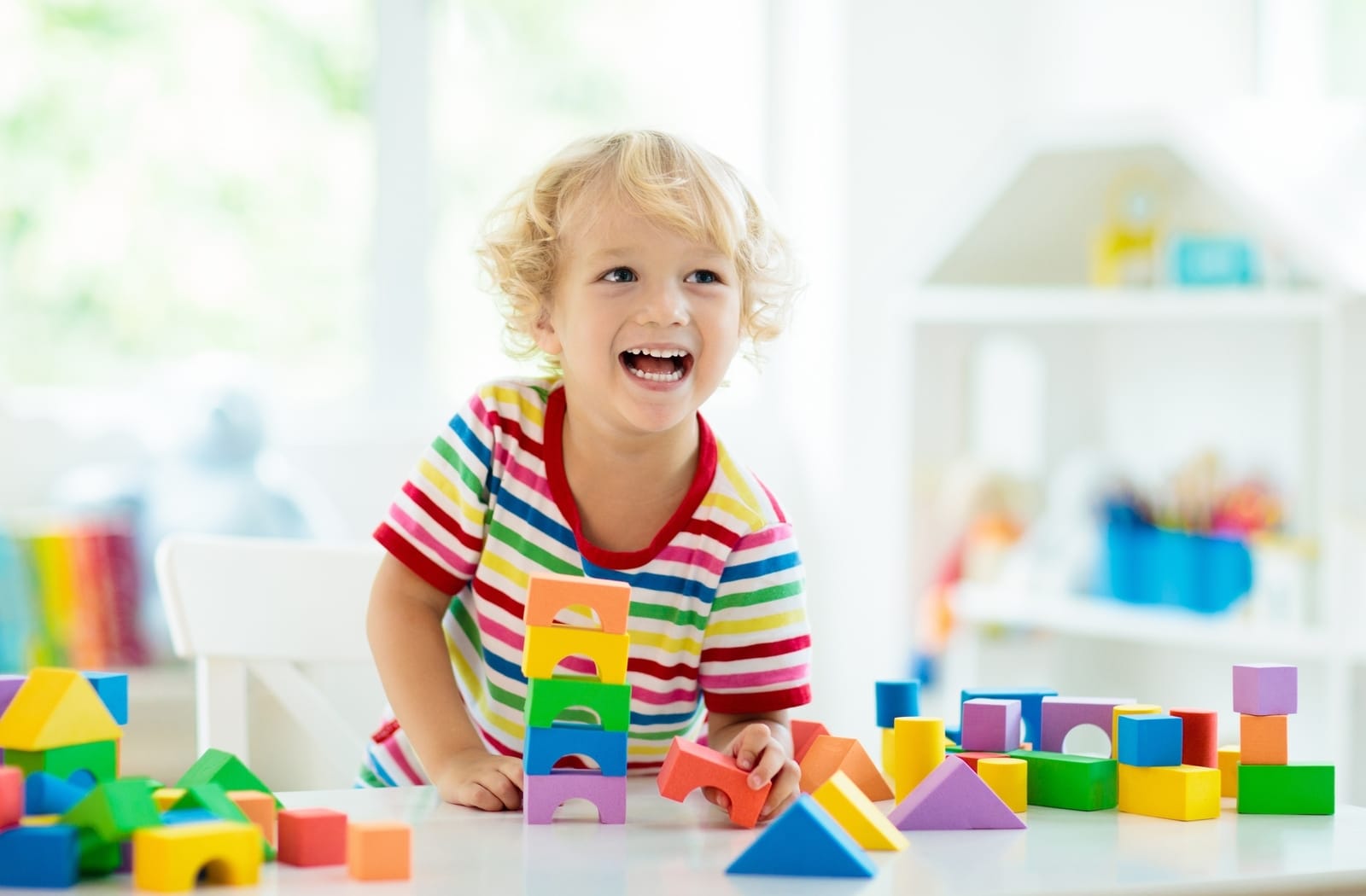Discover Top-Rated Daycare Near Me for Infants: Your Guide to Quality Care
Discover Top-Rated Daycare Near Me for Infants: Your Guide to Quality Care
Blog Article
The Duty of Daycare in Fostering Your Toddler's Emotional and Cognitive Skills Through Structured Play and Educational Activities
The role of daycare in nurturing a young child's psychological and cognitive advancement is commonly taken too lightly, yet it acts as a pivotal setting for organized play and educational activities. Through carefully made experiences and communications, caretakers facilitate essential abilities such as emotional awareness and problem-solving. These fundamental components not only improve a child's ability to get in touch with peers but also foster strength and flexibility in different circumstances. Understanding the subtleties of just how these dynamics unfold elevates vital inquiries regarding the long-lasting impact of very early day care experiences on personal growth and social assimilation. What might that indicate for future growth?
Relevance of Structured Play
Structured play is a vital element of kid advancement, as it supplies a framework whereby kids can take part in significant communications and learning experiences. This kind of play is intentionally created to cultivate various developmental abilities, such as cognitive, social, and physical abilities. By taking part in organized activities, toddlers find out to follow guidelines, take turns, and coordinate with peers, all of which are essential for their interpersonal abilities.

Furthermore, structured play typically incorporates educational components, such as counting, shade recognition, and language development, seamlessly incorporating finding out right into fun tasks. This technique not only catches young children' interest however also strengthens important ideas in a satisfying way. In general, structured play contributes in promoting a balanced advancement, gearing up young children with the fundamental skills needed for future understanding and social communications.
Emotional Growth in Childcare
Day care atmospheres play an essential duty in cultivating emotional development in kids. These setups supply children with chances to interact with caretakers and peers, helping with the growth of vital social-emotional abilities. With routine communications, kids find out to recognize and reveal their feelings, such as pleasure, disappointment, or unhappiness, which is crucial for their psychological maturity.

In addition, the structured atmosphere of childcare allows kids to experience a selection of emotions in a risk-free space. When transitioning from home to childcare and establish resilience as they navigate brand-new connections and experiences, they learn to take care of sensations of separation anxiousness. Generally, the psychological advancement fostered in day care not just benefits toddlers during their formative years however additionally prepares for healthy social partnerships and psychological well-being throughout their lives.
Cognitive Skills Via Activities
With participating in a variety of tasks, toddlers in childcare settings can dramatically enhance their cognitive skills. Structured play and instructional tasks are important in promoting cognitive development, as they supply opportunities for exploration, analytical, and critical thinking. Tasks such as problems, building blocks, and memory video games challenge toddlers to believe creatively and realistically, promoting important skills like spatial recognition and pattern acknowledgment.
Furthermore, interactive storytime sessions motivate language growth and comprehension. By listening to tales, toddlers learn to process details and involve their creativities, which enhances their narrative abilities and vocabulary. In addition, hands-on activities involving crafts and arts boost fine motor abilities while likewise motivating self-expression and imagination.
Sensory play, such as sand or water activities, allows toddlers to experiment with various structures and materials, advertising inquiry-based understanding. These experiences not just boost cognitive capabilities however likewise instill a sense of curiosity about the world around them - infant daycare near me. Generally, the diverse variety of cognitive activities supplied in daycare environments plays a crucial function fit a young child's capacity to think critically, solve problems, and involve meaningfully with their environments
Social Connections and Communication
In a caring setting, kids naturally build social links and take part in interactions that are essential for their interpersonal and emotional development. Childcare settings supply a special chance for children to interact with peers, cultivating essential social skills such as sharing, cooperation, and dispute resolution. These interactions help young children learn to browse their emotions and comprehend the perspectives of others, which are essential elements of emotional knowledge.
Through structured play and group activities, kids are motivated to connect their ideas and feelings, enhancing their spoken abilities and promoting compassion. Engaging with peers likewise introduces them to varied social norms and actions, enhancing their understanding of social characteristics. Regular interaction with various other youngsters aids to construct a sense of community, providing a support system that is advantageous for emotional growth.
As toddlers take part in collective tasks, they discover the relevance of negotiation, team effort, and persistence. These fundamental social abilities are crucial as they prepare for future relationships, both in academic settings and beyond. Eventually, the social connections formed in daycare play a significant role in shaping a toddler's capacity to Continue interact favorably and efficiently with others throughout their lives.
Function of Caretakers in Development

Caretakers play a pivotal role in promoting young child advancement, specifically in the context of the social communications they experience in childcare setups. These specialists give a nurturing atmosphere where young children can discover their feelings and cognitive capacities via structured play and . By participating in purposeful discussions, caretakers sustain language growth and boost social abilities.
In addition, caretakers model ideal habits and psychological responses, helping kids discover empathy and conflict resolution. Their visibility likewise creates a complacency, which is crucial for youngsters to confidently explore their environments and engage with peers.
In addition to emotional and social support, caretakers contribute in carrying out educational curricula that promote cognitive development best site - daycare near me for infants. They present age-appropriate tasks that promote curiosity, crucial reasoning, and analytical skills. This organized method ensures that toddlers not just appreciate their playtime but likewise acquire fundamental understanding important for future learning
Eventually, the quality of caretaker communications substantially impacts a kid's total advancement. By fostering a engaging and encouraging environment, caregivers assist prepare for healthy and balanced emotional and cognitive development, equipping kids with important abilities for their lifelong trip.
Conclusion
To conclude, childcare acts as a crucial environment for promoting psychological and cognitive growth in toddlers. Through structured play and , youngsters experience considerable development in their ability to recognize and reveal feelings, create essential thinking skills, and type crucial social connections. The function of caregivers is crucial in facilitating these experiences, guaranteeing that each kid take advantage of a nurturing ambience that advertises long-lasting psychological well-being and cognitive development.
The function of childcare in supporting a toddler's cognitive and psychological development is frequently ignored, yet it offers as an essential atmosphere for organized play and educational activities. In general, structured play is important in promoting a balanced development, gearing up young children with the foundational skills required for future discovering and social communications.
Day care atmospheres play a crucial role in fostering emotional advancement in young children. Overall, the psychological development fostered in daycare not just advantages kids during their formative years yet additionally lays content the groundwork for healthy interpersonal relationships and emotional health throughout their lives.
Through structured play and team activities, kids are motivated to interact their thoughts and sensations, improving their spoken skills and promoting compassion.
Report this page